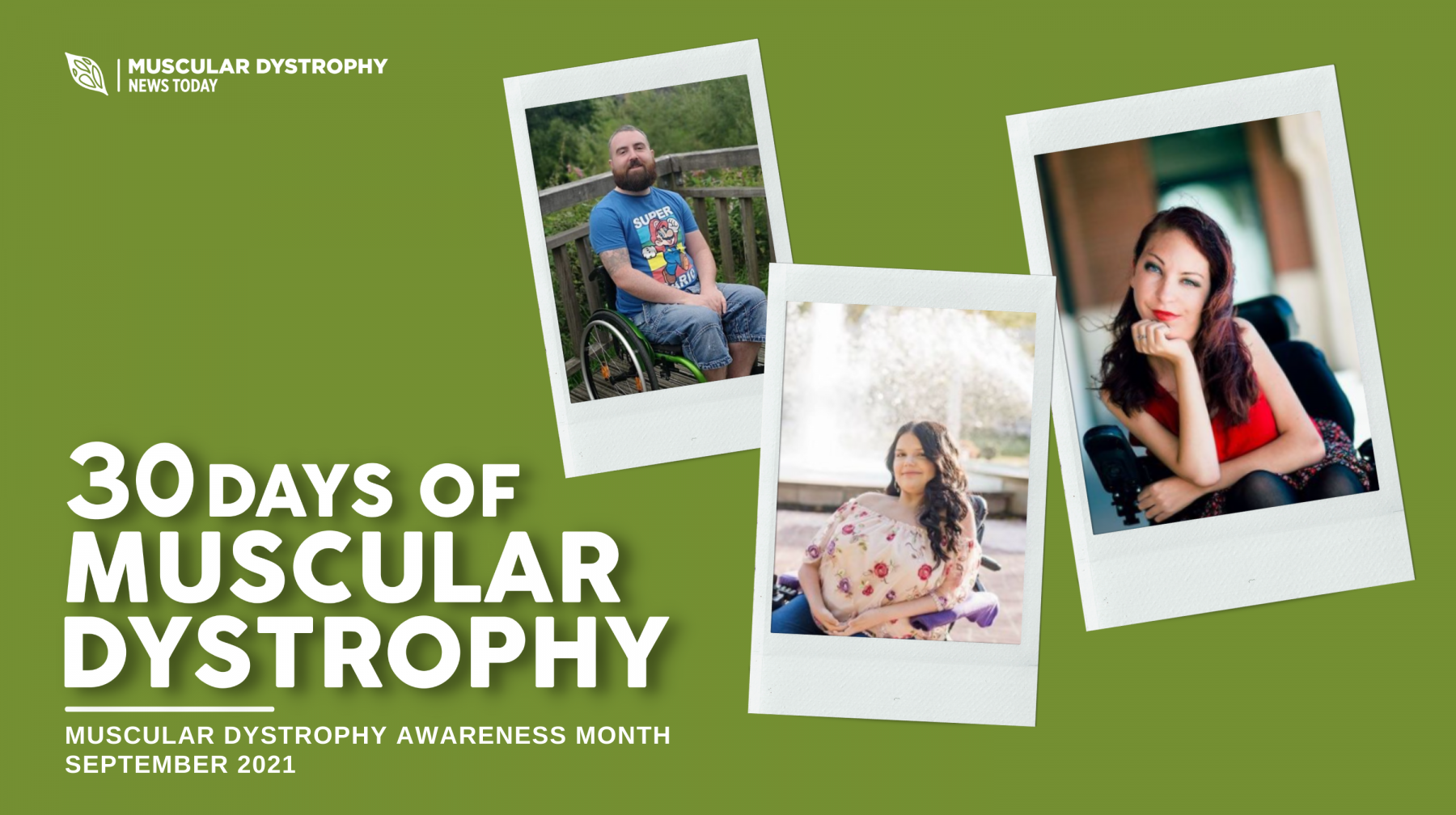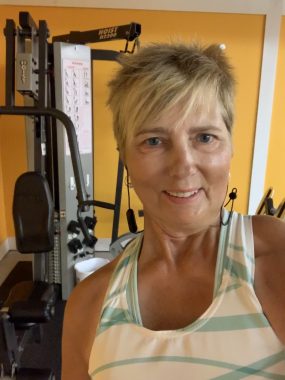30 Days of MD: Getting Fit with FSHD


Photo courtesy of Faye Flatt
Day 24 of 30
This is Faye Flatt’s story:
I was diagnosed with Facioscapulohumeral muscular dystrophy (FSHD) at age 21 when my cousin was referred to a neuromuscular specialist who asked to see family members with similar physical characteristics. My mother was diagnosed then as well.
We were told FSHD affected the face and shoulder muscles, limiting the ability to raise arms overhead, smile, or close eyes completely. Many patients experience leg muscle deterioration, and require a wheelchair. This happened to my mother 25 years later. We were also told exercise wouldn’t help and could increase progression.
FSHD did not significantly affect my life at first. However, around the time my mother was losing her mobility, I was losing a bit of mine. It became an annoyance when small modifications were necessary to accommodate routine tasks. To comb my hair, I’d prop my arm against the wall. To brush my teeth, I’d bend over the sink instead of raising the toothbrush to my mouth. Walking upstairs became a tripping hazard. One day I couldn’t balance myself long enough to take my sock off or raise my arms higher than my head. That day I vowed to do what I had to do to slow progression. That was seven years ago.
I joined the local gym and started working with a personal trainer. For someone living with a degenerative muscle disease, exercises often need to be modified to avoid injury. We started with resistance bands and light weights, and gradually saw improvement. Making modifications and inventing exercises along the way, we were encouraged to add squats and lunges using a TRX strap for assistance, then a treadmill to build cardio and stamina. Some days were hard but slowly the structured workouts with my husband paid off. I can now raise my arms overhead, walk up a flight of stairs without tripping, and balance on one foot!
Four years ago, I started a Facebook group to share what I had learned and to give others a platform to share their experiences. “Getting Physical with FSHD” offers a positive and supportive environment where patients and caregivers share what they do and how they do it, and help one another remain active, despite having a degenerative muscle disease.
Muscular Dystrophy News’ 30 Days of MD campaign will publish one story per day for MD Awareness Month in September. Follow us on Facebook and Instagram for more stories like this, using the hashtag #30DaysofMD, or read the full series.






